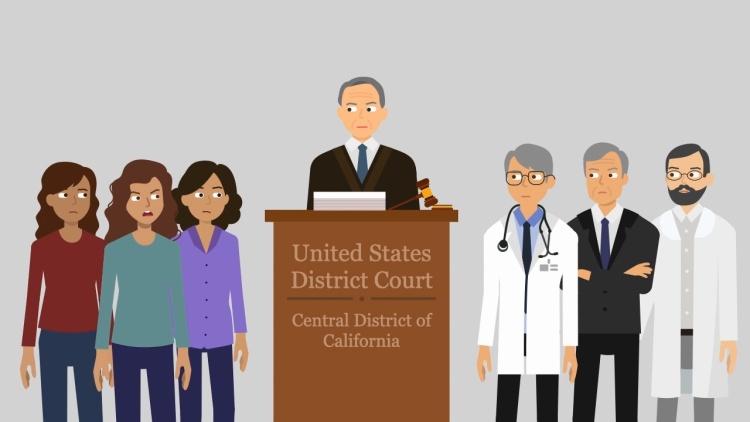Madrigal v. Quilligan
United States District Court for the Central District of California
No. CV 75-2057-JWC (1978)
- Written by Haley Gintis, JD
Facts
Ten Mexican women (plaintiffs) filed a claim under 42 U.S.C. § 1983 against multiple physicians (defendants). The complaint alleged that the women were sterilized without their voluntary and informed consent as part of a concerted plan to prevent women in low socioeconomic groups from creating large families. Among the group of women was Dolores Madrigal, who did not speak English and had consented to the sterilization procedure performed by Dr. Rutland after she was told, while in labor, that any subsequent pregnancies could result in her death; Maria Hurtado, who had a sixth-grade education and denied requesting the sterilization procedure performed by Dr. Neuman although she had signed informed-consent forms while in labor; Jovita Rivera, who did not speak English and orally consented to the procedure due to an emergency situation while in labor that prevented the physician from obtaining written consent; Maria Figueroa, whose husband gave written consent for the sterilization procedure performed by Dr. Kreitzer because Maria was already in surgery when the physician discovered uterine conditions that could result in uterine rupture; Helena Orozco, who gave written consent to the procedure formed by Dr. Yee after she was told that any future pregnancies could result in serious health issues; Georgia Hernandez, who consented to the procedure performed by Dr. Mutch but claimed that Mutch told her that she should not have any more children because she was too poor; Consuelo Hermosillo, who had an eighth-grade education and consented to the procedure performed by Mutch but had the false belief that the sterilization procedure could be reversed; and Estella Benavides, who did not speak English and consented to the procedure after the physician told her that a subsequent pregnancy may lead to maternal death. At the hearing, an anthropological expert testified that the Mexican rural subculture in which the women belonged placed high value in fertility and a psychiatrist testified that a woman in labor would not be able to give intelligent and knowing consent to a sterilization procedure. Many of the physicians testified that they had performed the procedure based on the belief that the woman had given her free and knowing consent.
Rule of Law
Issue
Holding and Reasoning (Curtis, J.)
What to do next…
Here's why 907,000 law students have relied on our case briefs:
- Written by law professors and practitioners, not other law students. 47,100 briefs, keyed to 996 casebooks. Top-notch customer support.
- The right amount of information, includes the facts, issues, rule of law, holding and reasoning, and any concurrences and dissents.
- Access in your classes, works on your mobile and tablet. Massive library of related video lessons and high quality multiple-choice questions.
- Easy to use, uniform format for every case brief. Written in plain English, not in legalese. Our briefs summarize and simplify; they don’t just repeat the court’s language.





